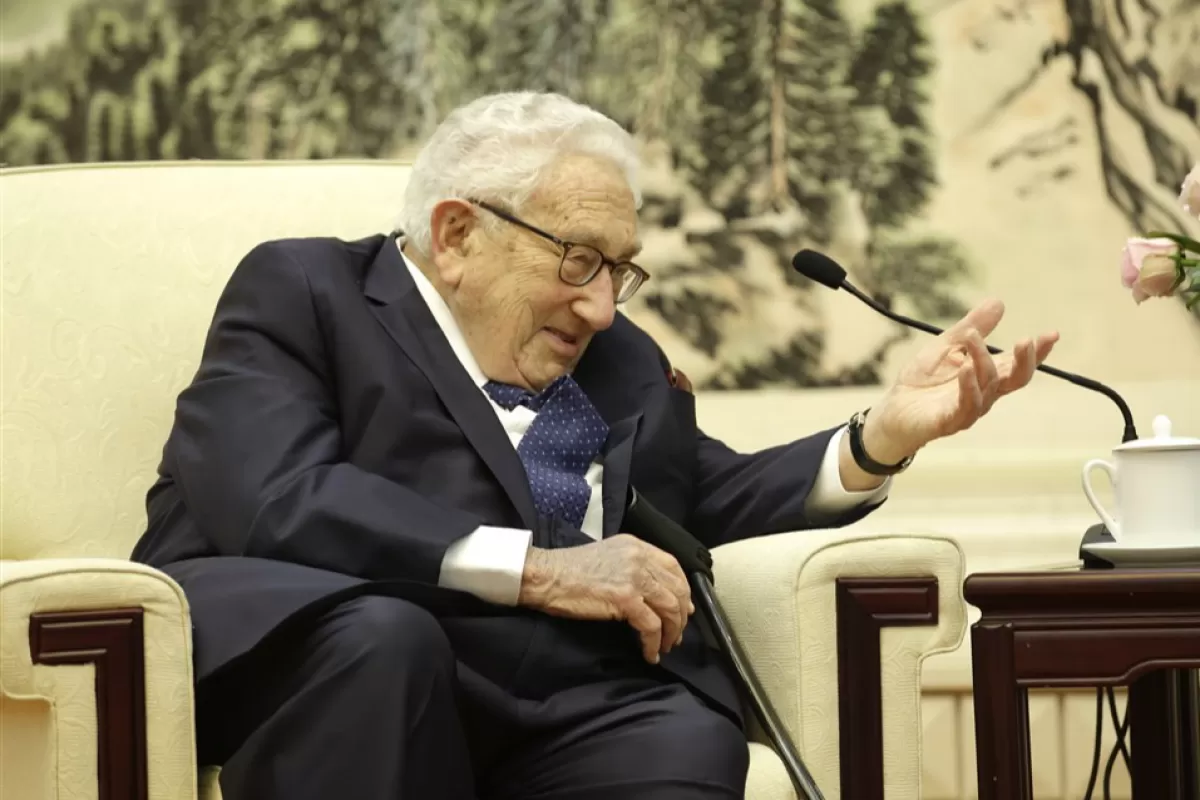
A subjective interpretation of an editorial signed by the renowned American diplomat Henry Kissinger, recalling the narrative line promoted by Vladimir Putin prior to the start of the aggression against Ukraine, aims to justify the speech of the former Romanian Foreign Minister Andrei Marga, from mid-September, in which he says that Ukraine must cede territories to Russia, Romania, Hungary and Poland in order to obtain peace in the war with Russia. In reality, Kissinger detailed a diplomatic scenario imagined by him in spring, meant to provide a solution to reach peace following the Russian invasion of Ukraine
NEWS: “It is not very clear why Kissinger chose this moment to resume his position from late May, a position shared in Romania by the former minister Andrei Marga, namely that Ukraine must get used to the idea that it is going to give up some of its current territories if it wants peace with Russia. Most likely Kissinger is trying to bring his solution at a negotiating table unseen by the general public”.
NARRATIVES: 1. The borders of Ukraine are unnatural, they must be reconfigured, and the Ukrainian territory divided between the rightful “owners”. 2. The rest of Ukraine must remain a buffer zone between Russia and NATO. 3. Ukraine does not want peace, therefore it is guilty of the war it is waging against Russia.
CONTEXT: In May this year, Henry Kissinger was calling on all the forces involved in the Russian-Ukrainian conflict to urgently find a solution for peace. Kissinger suggested, however, that this solution could only be found by starting the negotiations from the quo ante status of Ukraine's borders, without detailing which status that was. There were speculations that Henry Kissinger had suggested that the Crimean Peninsula be ceded to Russia, which had invaded and annexed it not long before. The speculation was treated as a certainty by Russian propaganda and was obviously picked up by the Kremlin’s mouthpieces in Romania , including the former Securitate informer Andrei Marga. Kissinger clarified his suggestion in an editorial published in the British press last week. On this occasion, activenews.ro, a site well-known as a source of fake news in Romanian online media, comes with the Russian interpretation of the model suggested by Kissinger, while trying to validate Andrei Marga's position, one that’s been vehemently rejected and considered totally unacceptable by the Romanian diplomacy.
PURPOSE: To promote the idea that the war in Ukraine is nothing more than a plot between Kyiv and NATO directed against Russia, portrayed as a victim who has the right to defend itself and protect its people, just as all the other countries that Ukraine “seized” territories from should do. To accredit the idea that Russia rightfully owns the territories it occupied and annexed, something that the West also acknowledges.
WHY THE NARRATIVES ARE FALSE: Drawing a parallel with the outbreak and development of the First World War, Henry Kissinger warns of the danger of a global war, in the event of an escalation of the current Russian-Ukrainian conflict. But, although Kissinger also briefly reviews the territorial reconfiguration of Europe after the “Great War”, it is not considered an option at the moment. More precisely, the American diplomat does not see the end of the conflict by signing a treaty like the one in 1919, in Versailles. Aware that, at this moment, a neutral Ukraine, a buffer between NATO and Russia, represents a utopia, the former secretary of state suggests a provisional ceasefire agreement:
Ukraine has become a major state in Central Europe for the first time in modern history. Aided by its allies and inspired by its President, Volodymyr Zelensky, Ukraine has stymied the Russian conventional forces which have been overhanging Europe since the second world war. (...)This process has mooted the original issues regarding Ukraine’s membership in NATO. Ukraine has acquired one of the largest and most effective land armies in Europe, equipped by America and its allies. A peace process should link Ukraine to NATO, however expressed. The alternative of neutrality is no longer meaningful, especially after Finland and Sweden joined NATO. This is why, last May, I recommended establishing a ceasefire line along the borders existing where the war started on 24 February. Russia would disgorge its conquests thence, but not the territory it occupied nearly a decade ago, including Crimea. That territory could be the subject of a negotiation after a ceasefire
Basically, Kissinger suggests an immediate stop to the Russian attacks on Ukraine and the withdrawal of Moscow's troops from the regions of Kherson and Zaporizhzhia. For Donbass and Crimea, seized by Russia or its people in Donetsk prior to the 2022 invasion, Kissinger proposes holding referendums on real self-determination monitored by the international community – but only if their fate cannot be decided through negotiations. Under no circumstances does the American diplomat discuss the division of Ukraine as in Marga's vision, nor does he propose any voluntary transfer of territories from the Ukrainian side in favor of Moscow.
Both Ukraine and the West have consistently expressed their openness to negotiations, including for a change in the administrative regime of the two regions, but only under the condition of the withdrawal of the invading troops from their territories. However, Russia's refusal and the repeated attacks on the entire Ukrainian territory make these negotiations impossible.


---copie-image.webp)